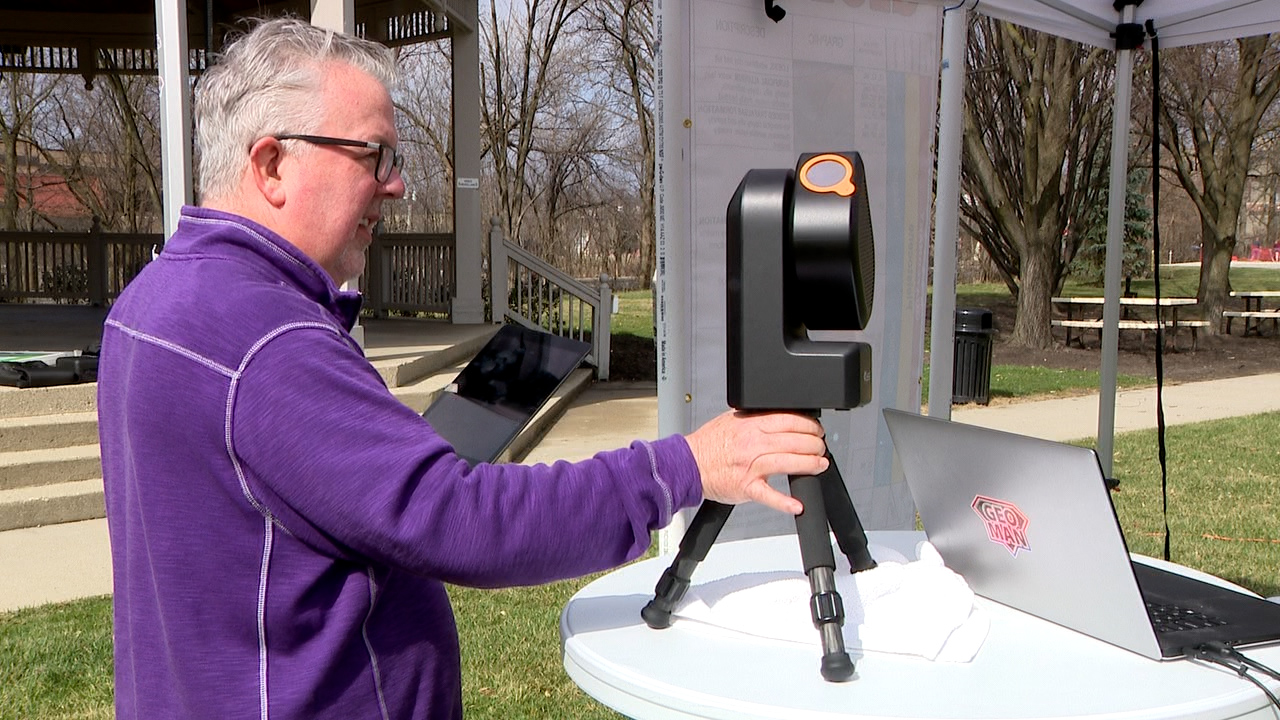CARMEL, Ind. — What looks more like a portable speaker is actually a state-of-the-art telescope that scientists will use to show people the tiny details of the total Solar Eclipse on April 8.
”We will really be able to experience it in its full glory,” said Dan Kelleher, the President of Midwest GeoSciences.
On April 8, the moon will completely cover the sun for 3-and-a-half minutes over Carmel.
”That is going to seem like a really long time,” Kelleher said.
Kelleher couldn’t be more excited for people to experience this once-in-a-lifetime solar phenomenon with his Seestar S50 smart telescope.
”It knows just where it is geographically on Earth, so it knows where everything is in the night sky,” Kelleher said.
With the press of a button, Kelleher selects what he wants the telescope to find and it goes there. Even showing the Sun on a cloudy day.
”That’s the Sun right now live, and if you look close you can see the clouds moving in front of it,” Kelleher said.
The telescope can take pictures and videos, too. Powerful enough to capture solar flares and sunspots from 93 million miles away.
”The colors just pop, it is excellent,” Kelleher said. “They are museum-quality images.”
The telescope will be right here next to Carmel City Hall on April 8 for a viewing event thousands are expected to attend.
Kelleher will show the crowd what the telescope is seeing on a screen and they’ll also broadcast live to the world on YouTube.
”People all over the United States and all over the world will be able to log in to the city of Carmel and see what the eclipse looks like right here at Civic Square, and to me, that’s pretty exciting,” Kelleher said.
It will give onlookers a different view of the eclipse than they’ll get just watching through the glasses.
”You will not be able to see a sunspot with the glasses, but you will be able to see a sunspot with the smart telescope,” Kelleher said.
Kelleher wants to make sure as many people as possible get to experience totality with as much detail as possible.
”It connects with us emotionally, being able to witness it, being able to hear it and experience it with all of our senses,” he said.
Midwest GeoSciences will also be hosting lectures before the weekend to teach people about the eclipse so they know what to look for as the event is happening.
Another lecture will also be hosted by a Northwestern University professor about the possibility of life beyond our solar system.
Everything is free. You can find more details on the Midwest GeoSciences website.


